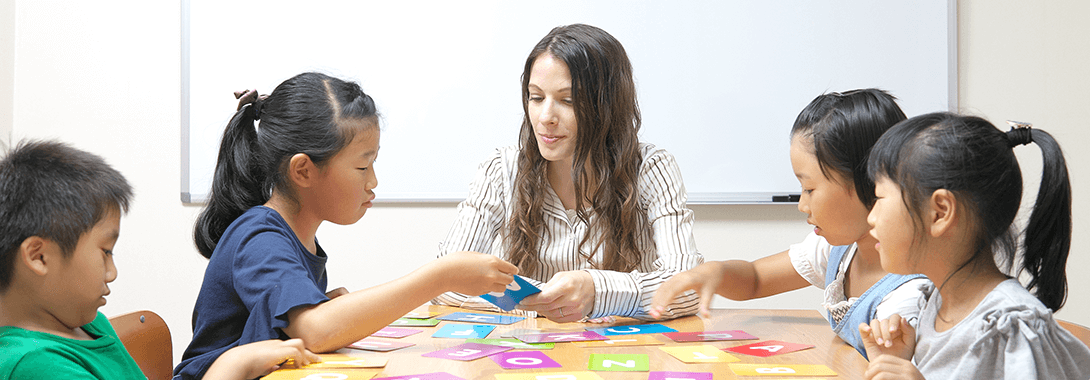Notice
News & Topics

My personal plan to make my children truly happy when they grow up (Part 3)
Hello, this is Kaburaki, GLI representative.Today is the last chapter in this series.will be.
(Part 1:http://gli-english.com/1846/)
(Part 2:http://gli-english.com/1857/)
Role of Education

I believe that the role of education isTwo.We believe that there areOne is the training and acquisition of period qualities. The other is the training and acquisition of universal qualities.
Periodic qualities are the abilities necessary to live in a given period.
In other words, from the perspective of "education" in the Edo period, it was reading, writing, and abacus. For the past several decades, this was the basis of one's educational background (ability or not).
This is now (and will be in the future) being replaced by English language skills, STEM-based skills, and skills that only humans can do that are as good as AI.
Period competence is in other words,Competencies required by society at that timeYou can say.
From that point of view,We need to understand that the education we have received is clearly different from the education our children will need (and will need) in the future.I think.
The Language of Happiness
Whenever I do a career guidance workshop for students, I alwaysJapan's Happiness RankingYou will be asked to think about
Why is Japan's happiness ranking the lowest among developed countries (54th)? Then the discussion usually turns to "What is the definition of happiness? The discussion usually turns to "What is the definition of happiness? There are many other conditions for happiness besides education.
In its element,What would make you happy? We ask them to think about what would make them happy.If the condition of happiness is "fulfilling work," then what is fulfillment? What is fulfillment?
So the first thing couples should try to do is,"To verbalize (materialize) the well-being of one's children."I think it is. I don't think anyone had ever thought about that before.
I think most of the discussions were about how to get them to study, where to enroll them in cram schools, and how to get them into academic brand-name schools.
But now that getting into an academic brand school no longer brings complete and utter happiness, and now that the times have changed in terms of the abilities we seek, I don't think we can avoid this discussion and make our children happy.
first of allParental Responsibility."is,To understand the prerequisites for this changed education and to prepare for it.I think it is.
When discussing what kind of life you want your child to be leading at age 30 and the language of happiness, the necessary perspective is not the immediate destination of higher education, but rather the far-reaching and deeper perspective of what you want your child to be doing at age 30 or 40, in other words, what you want him/her to be doing as an adult. What do you want your life to be like when you reach the age of 30 or 40?
I don't think I need to explain,The job test is "What can you do?" What are the results of what you have done? and there is no such thing as lifetime employment anymore.
Having the necessary abilities is a condition for getting a job, and in the future, these abilities will have to be upgraded throughout one's life.
If your child is 10 years old now, you should imagine the world 20 years from now or in 2040, set the conditions for happiness based on that, and think about the "means and environment" to acquire the necessary abilities.
You may think this is a bit businesslike, but as I mentioned last time, it has become difficult to acquire human qualities through on-the-job training in the community, and I think it is important to strategically and systematically compensate for what is lacking.
Therefore, I did not call the meetings held at the cram school "three-party meetings," but called them "~san college preparatory strategy meetings" to discuss what the cram school, the student, and the parents could do for each other.
know, see, feel, think
What can you do at 30? Parents and educators should not simply stop with the acquisition of knowledge when considering "What can I do at 30?Knowing - Seeing (feeling) - ThinkingWe believe that it is important to design to the highest level possible.
We will actually go to the field to confirm the knowledge we have acquired. I believe that this experiential action is one of the goals of education.
The human heart is moved when we actually see with our eyes, hear with our ears, and touch with our hands. I call this"Cultivating the mind through experience."We call it.
The overwhelming lack of children now is,A realization that shocks the heart through experience.It is.
The more you run a marathon, the stronger your heart becomes. The more the heart experiences, the stronger it becomes to feel and perceive something.
It is human beings who want to do something about what they feel there. Then, even if they remain silent, children are creatures that will come up with ideas on their own.
Nowadays, children are being deprived of more and more opportunities for real experiences.Parents and educators need to truly understand this.
Experience is the best way to learn.
I have one belief in education.That being said, there is no better way to learn than through experience.
So I think one of my jobs is to push the kids to the zone of action.
But today's children are not taking action to experience it. So from a parent's or educator's point of view, we need to understand this, how to get to the action.
The reality is that people who say, "Go volunteer," "Go abroad," etc., do not always say, "Yes, I understand! But in reality, it is not always easy to say, "Okay!
What is the necessary environmental setting before action,
(1) Knowledge input
(2) Ask questions based on that information.
(3) Discuss about it.
(4) Have a session with a role model
(5) Guide them to the site
(6) Feelings
(vii) think
It is.
For example, if we take as a starting point the information that it is Japan's happiness ranking, did you know that Japan's happiness ranking is the lowest in the developed world? What do you think about that? I've brought the person who is the happiest~. Would you like to visit him (or her) at work? How did you feel? What would you do? This is the process of saying.
We'll find something you like to do together.
To reiterate,Education no longer promises perfect happiness.
If parents cling to the matter, they run the risk of making their children unhappy in the future.
However,I do not deny study or knowledge.Studying is absolutely necessary to gain knowledge, to solve problems, and to create 0 to 1.
However, the downside of study becoming an end in itself has already been discussed.
The important thing is, "What will I be able to do in the future?"and training them to be able to do it isFocus on what you love.I believe that it is good to be polished in
Therefore, what we should do as parents is to ask ourselves, "What does this child like? I believe that we should work together to find the target to focus on, which is the child's characteristics, personality, and interests, through various experiences, starting with "What does the child like?
As Isoroku Yamamoto said, "Show them what you can do, let them hear what you have to say, and praise them, or they will not move.
mutual education, mirror education and cooperative education
Children will focus on what they like to do as much as they want.
Raise that power up to exploratory learning, and then broaden the learning process and the desire to learn. Then the child will begin to learn without talking.
If there is something I like that I can't solve without knowledge, I will naturally look it up or ask about it. (Don't you think that you are closing off your own possibilities?
I want them to understand that this is the foundation for learning (without forcing them to study).
However, children are not always able to do this from a young age. Until they are able to do this on their own, they still need the cooperation of their parents.
It will not happen if, as in the past, we send them to cram schools and rely on the school for everything, and mothers alone are responsible for their education.
The important thing here is for parents to learn together (co-education). By showing that the parents are also absorbed in something (mirror education), the child will naturally acquire the habit of learning.
It is necessary for the couple to cooperate in raising the child, not only the mother.
From Experience to Exploration
With a title as grand as "education that makes you really, really happy," one would have expected nothing less.
Unfortunately,There is no such thing as a "just use this text" as there is in studying.
Just,"Experience→interest→focus and exploration→motivation to learn."I believe that this is largely a formula for making (and enabling) children to grow up in happiness.
After all, parents die first. We cannot take care of them for the rest of their lives.
Then, isn't the purpose of education to help people discover their own definition of happiness, and to enable them to think, judge, choose, and act toward that definition?
Studying is important. What makes you happy as a parent is to see your child really engage in it. If that is the case, then you need to find something that makes them want to study. Isn't that the role of parents?
Is it right to let them grow up without the experience of being surrounded by as many people as they used to be, and without experiencing the world at large in elementary, junior high, and high school?
Study (and English language skills) is a means of resolution and creation. The object of study should be human pain and joy.
I believe that when the thoughts and feelings given by the people involved are connected to justice and peace in the world at large, it will lead to the completion of the second role of education, which is to become universal.
The true happiness of the child in front of you will lead to a contribution to the world at large. I believe that education is something that has the power to do so.
GLI Representative Kaburaki
PS]
Articles we would like you to know about in conjunction with
Treat them like adults, but also value the time you can spend being a child.
What I Learned from Experiencing Danish Education|Daisuke Suga|note
https://note.com/daisuke_suga/n/nf25cc074ced7
[Feel free to consult with us.
If you are concerned about your child's English education, feel free to contact us for on line counseling.
→directional marker or indicator https://line.me/R/ti/p/%40htl7473n
note (supplementary information) symbolFree Consultationand message me!




